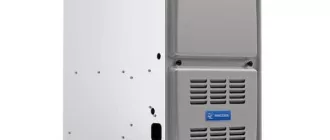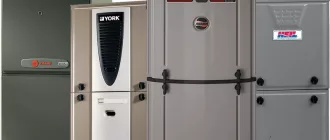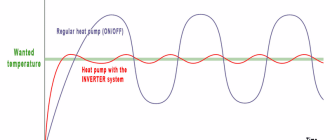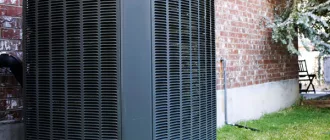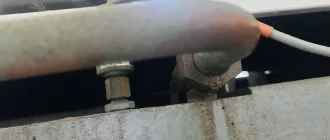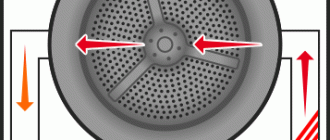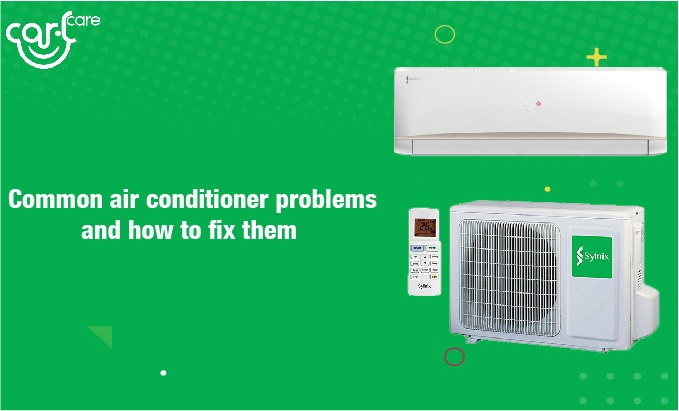
Air Conditioning Issues: Causes, Solutions, and Prevention Methods
Air conditioning is a vital part of keeping your home comfortable and cool, especially during hot summer months. However, like any complex system, it can experience problems from time to time. In this article, we will explore some of the most common air conditioning problems and provide you with tips on how to prevent and correct them.
One of the common issues people face with their air conditioning is inadequate cooling. This can be caused by various factors, such as dirty air filters, refrigerant leaks, or a malfunctioning compressor. To correct this problem, make sure to regularly clean or replace your air filters, check for any leaks, and call a professional technician to inspect and repair your compressor if necessary.
Overview of the article
In this article, we will provide an overview of common air conditioning problems and how to prevent and correct them. We will discuss various issues that can arise with air conditioning systems and provide practical tips on how to avoid these problems.
First, we will address the importance of regular maintenance for air conditioning units to prevent potential problems. We will outline essential maintenance tasks that should be performed regularly, such as cleaning or replacing air filters, inspecting the condenser unit, and clearing debris from the outdoor unit.
Next, we will explore common problems that can occur with air conditioning systems, including improper cooling, uneven temperature distribution, strange noises, and water leakage. We will explain the underlying causes of each issue and suggest possible solutions to correct them.
Additionally, we will discuss the importance of proper insulation and ventilation in preventing air conditioning problems. We will emphasize the need for adequate insulation in the building to prevent heat from entering or escaping, which can cause the air conditioning system to overwork or underperform. We will also advise on the importance of proper ventilation to maintain good air quality and prevent mold and mildew growth.
Lastly, we will provide tips on how to troubleshoot common air conditioning problems and when to seek professional help. We will discuss basic troubleshooting steps, such as checking the thermostat settings, ensuring power supply, and inspecting the circuit breaker. However, we will also highlight situations where professional assistance may be required, such as refrigerant leaks or compressor issues.
In conclusion, this article will serve as a comprehensive guide to understanding and addressing common air conditioning problems. By following the preventive measures and corrective actions suggested, readers will be able to maintain efficient, reliable, and properly functioning air conditioning systems.
Importance of maintaining air conditioning
Regular maintenance of your air conditioning system is of utmost importance to ensure it functions optimally and lasts longer. By addressing common air conditioning problems promptly, you can prevent costly repairs, breakdowns, and inconveniences.
- Improved Air Quality: A well-maintained air conditioning system helps filter out pollutants, allergens, and dust from the air, providing you with cleaner and healthier indoor air quality.
- Energy Efficiency: Keeping your air conditioning system clean and well-maintained can improve its energy efficiency, helping you save on utility bills. When the system is clogged with dirt and debris, it has to work harder and consumes more energy to cool the space.
- Increased Lifespan: Regular maintenance can extend the lifespan of your air conditioning unit. Addressing common problems, such as low refrigerant levels, faulty wiring, or worn-out components, can prevent major breakdowns and potentially costly replacements.
- Enhanced Performance: By taking care of common air conditioning problems, you can ensure that your system functions at its best. This means it will cool your space more effectively, providing you with the desired level of comfort.
Don’t underestimate the importance of maintaining your air conditioning system. By preventing and addressing common problems, you can improve air quality, energy efficiency, lifespan, and overall performance, ensuring a comfortable and healthy indoor environment.
Common problems faced by air conditioning systems
Air conditioning systems can experience a variety of problems that can affect their performance and efficiency. Here are some common problems faced by air conditioning systems:
| Insufficient cooling | Check and clean the air filters, ensure proper airflow, and adjust the thermostat settings. | Regularly clean and replace air filters, schedule professional maintenance, and keep the system free from obstructions. |
| Leaking refrigerant | Identify and repair the leak, then recharge the system with the correct amount of refrigerant. | Inspect and maintain refrigerant lines, valves, and connections regularly. |
| Frozen evaporator coil | Check for airflow restrictions, clean or replace air filters, and thaw the coil if necessary. | Regularly clean air filters, maintain proper airflow, and ensure the system is adequately charged. |
| Strange noises | Inspect and tighten loose components, lubricate moving parts, and replace worn-out or damaged parts. | Regularly inspect and maintain the system, provide proper lubrication, and tighten loose connections. |
| Electrical problems | Inspect and replace faulty wiring, connectors, or electrical components. | Regularly check electrical connections, perform routine inspections, and schedule professional maintenance. |
By addressing these common problems and taking preventative measures, you can ensure your air conditioning system operates efficiently and provides optimum comfort.
Benefits of addressing air conditioning problems
Addressing common air conditioning problems and taking steps to prevent them can provide a range of benefits, both for your comfort and for your wallet.
First and foremost, addressing these issues can help to maintain a comfortable indoor environment. Air conditioning problems can lead to inconsistent cooling or heating, inefficient airflow, and uneven temperature distribution throughout your home or office. By addressing these issues, you can ensure that your air conditioning system is operating at its best, providing you with optimal comfort.
Additionally, addressing air conditioning problems can help to prevent more serious issues from arising. Neglected problems can worsen over time, leading to costly repairs or even the need for a full system replacement. By taking proactive measures to address these issues, you can save yourself from the inconvenience and expense of major repairs or replacements down the line.
In addition to preventing major problems, addressing air conditioning issues can also help to improve energy efficiency. When your air conditioning system is not functioning properly, it may have to work harder and use more energy to achieve the desired temperature. By addressing common problems and ensuring that your system is running smoothly, you can reduce energy consumption and lower your utility bills.
Furthermore, addressing air conditioning problems can help to prolong the lifespan of your system. Regular maintenance and prompt repairs can extend the life of your air conditioning unit, allowing you to get the most out of your investment. By taking care of common problems as they arise, you can help to ensure that your air conditioning system operates efficiently and effectively for years to come.
In conclusion, addressing air conditioning problems offers numerous benefits, including enhanced comfort, prevention of major issues, improved energy efficiency, and increased lifespan of your system. By being proactive and addressing common problems, you can enjoy a more comfortable and cost-effective indoor environment.
Dirty Air Filters
One of the most common problems with air conditioning systems is dirty air filters. Over time, air filters can become clogged with dust, dirt, and other debris. When this happens, it can restrict the air flow, leading to poor cooling performance and reduced energy efficiency.
To correct this problem, you should regularly check and clean or replace the air filters. It is recommended to clean or replace the air filters at least once every three months, or more frequently if you have pets or live in a dusty environment. Cleaning or replacing the air filters will ensure that your air conditioning unit can operate efficiently and effectively.
Preventing dirty air filters is also important. You can prevent this problem by regularly maintaining your air conditioning system. This includes regularly inspecting and cleaning the air filters, as well as scheduling professional maintenance check-ups. Additionally, you can improve the air quality in your home by minimizing dust and other airborne particles.
By addressing dirty air filters promptly and implementing regular maintenance, you can ensure that your air conditioning system operates at its best, providing you with cool and clean air throughout your home.
Low Refrigerant Levels
One common air conditioning problem that may arise is low refrigerant levels. Refrigerant is the substance responsible for cooling the air in your conditioning system. When the refrigerant level is low, your air conditioner may not be able to cool your space efficiently, leading to decreased comfort.
There are a few reasons why low refrigerant levels can occur. One possible reason is that there is a small leak in your system. Over time, this can cause the refrigerant to slowly escape, resulting in low levels. Another possible reason is that your system was not properly charged with refrigerant during installation or maintenance.
If you suspect that your air conditioning system has low refrigerant levels, it is important to address the issue promptly. Low refrigerant levels can lead to several problems, including:
- Reduced cooling efficiency: Without enough refrigerant, your air conditioning system will struggle to cool your space effectively, leading to decreased comfort.
- Icing up: Low refrigerant levels can cause the evaporator coil to freeze, resulting in reduced airflow and further diminishing cooling performance.
- Compressor damage: Insufficient refrigerant can cause the compressor to overheat and potentially fail, leading to costly repairs or replacements.
To prevent low refrigerant levels and the associated problems, regular maintenance is crucial. It is recommended to have your air conditioning system inspected and serviced by a professional at least once a year. This can help identify any leaks or low refrigerant levels early on and fix them before they become major issues.
If you notice any signs of low refrigerant levels, such as reduced cooling performance or unusual noises coming from your system, it is important to contact a qualified HVAC technician. They can accurately diagnose the issue and take the necessary steps to correct it, ensuring that your air conditioning system operates efficiently and effectively.
Frozen Evaporator Coils
One of the common air conditioning problems is frozen evaporator coils. This occurs when the coils, which are responsible for removing heat and humidity from the air, become too cold and frost starts to form on them. When this happens, the air conditioner may not be able to cool the air properly, leading to reduced cooling efficiency and discomfort in your space.
There are a few reasons why evaporator coils freeze, and it is important to address them to correct and prevent this issue. First, restricted airflow can cause the coils to freeze. This can happen if the air filter is clogged, preventing proper air circulation. Regularly cleaning or replacing the air filter can help maintain proper airflow and prevent the coils from freezing.
Another cause of frozen evaporator coils is low refrigerant levels. Refrigerant is responsible for absorbing heat from the air as it passes over the coils. If there is a refrigerant leak or if the levels are low, the coils may not be able to absorb enough heat, causing them to freeze. In this case, a professional HVAC technician should be contacted to inspect and repair the refrigerant system.
In some cases, a malfunctioning thermostat can also lead to frozen coils. If the thermostat is not accurately sensing the temperature, it may cause the air conditioner to run longer than necessary, resulting in the coils becoming too cold. Checking and recalibrating the thermostat settings can help prevent this issue.
In conclusion, frozen evaporator coils are a common air conditioning problem that can affect the efficiency and performance of your cooling system. By addressing issues such as restricted airflow, low refrigerant levels, and malfunctioning thermostats, you can correct and prevent frozen coils, ensuring optimal cooling and comfort in your space.
Faulty Thermostat
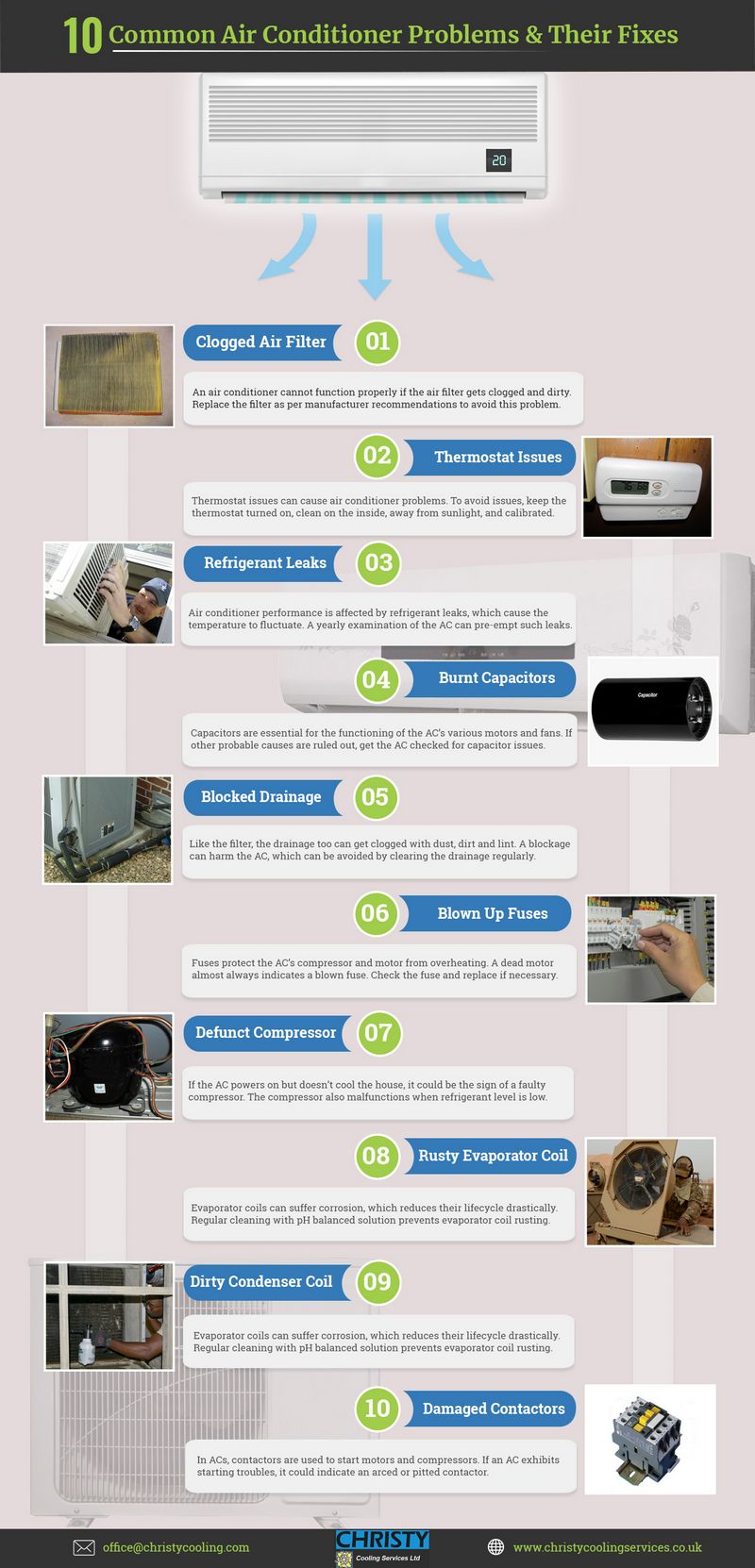
A faulty thermostat is a common air conditioning problem that can cause various issues. The thermostat is responsible for regulating the temperature and controlling the cooling system. When it malfunctions, it can lead to incorrect temperature readings, sporadic cooling, or even complete system failure.
One of the most common symptoms of a faulty thermostat is when the air conditioning system fails to turn on or off at the desired temperature. This can result in discomfort and inefficient cooling. If the thermostat is not functioning correctly, it may not send the signal to the air conditioner to start or stop, causing the system to run continuously.
To correct this problem, you can try recalibrating or replacing the thermostat. Recalibrating involves adjusting the settings to ensure accurate temperature readings. However, if the thermostat is old or severely damaged, it may be necessary to replace it entirely. It is recommended to consult a professional HVAC technician to properly diagnose and fix the faulty thermostat.
To prevent future problems with your thermostat, regular maintenance is crucial. Clean or replace air filters regularly to ensure proper airflow and prevent dust or debris from affecting the thermostat’s performance. Additionally, make sure the thermostat is located away from heat sources or direct sunlight, as excessive heat can affect its accuracy.
In conclusion, a faulty thermostat is a common air conditioning problem that can disrupt the comfort of your home. By understanding the symptoms and taking appropriate corrective measures, you can prevent further issues and ensure efficient cooling throughout your space.
Leaking Air Ducts
One of the common air conditioning problems is leaking air ducts. Leaks in the air ducts can have a significant impact on the efficiency of your cooling system and can lead to higher energy bills. When air ducts are not properly sealed, conditioned air can escape and go to waste, causing your air conditioner to work harder and longer to cool your home.
To correct this problem, it is important to identify and repair any leaks in your air ducts. You can start by visually inspecting the exposed air ducts in your home for any signs of damage or loose connections. Look for gaps, holes, or disconnected sections. If you notice any issues, you can seal them using mastic or metal tape.
To prevent future leaks, it is recommended to have your air ducts inspected and sealed regularly by a professional HVAC technician. They have the expertise to identify and fix any potential leaks or other issues with your ductwork. Regular maintenance and cleaning of your air ducts can also help prevent leaks and improve the overall efficiency of your air conditioning system.
In addition to improving the efficiency of your air conditioning system, addressing leaking air ducts can also enhance the indoor air quality in your home. Leaks in the ductwork can allow contaminants, such as dust, pollen, and mold spores, to enter your living space. Sealing the ducts helps prevent the infiltration of these pollutants and ensures that you are breathing clean and healthy air.
If you suspect that your air ducts may be leaking or if you are experiencing any other common air conditioning problems, it is best to seek professional help. An HVAC technician can assess the condition of your ductwork and recommend the appropriate solutions to correct and prevent them. Remember, maintaining your air conditioning system is essential for its optimal performance and longevity.
Clogged Drainage Lines
One common problem that can occur with air conditioning systems is clogged drainage lines. The drainage lines are responsible for removing the condensation that builds up inside the unit. When these lines become clogged, it can lead to a variety of issues.
One of the most obvious signs of a clogged drainage line is water leaking from the unit. This water may puddle around the base of the unit or even drip from the ceiling if the air conditioner is located in an upper floor. Not only can this water damage your property, but it can also cause mold and mildew growth, which can lead to health problems.
To prevent clogged drainage lines, it is important to perform regular maintenance on your air conditioning system. This includes checking and cleaning the drainage lines on a regular basis. You can use a mixture of vinegar and water to remove any build-up or debris from the lines.
If you notice that your air conditioner is not cooling as effectively as it should, or if you detect a musty odor coming from the unit, it may be a sign that the drainage lines are clogged. In this case, it is important to correct the problem as soon as possible to avoid further damage to your system.
If you are not comfortable cleaning or unclogging the drainage lines yourself, it is recommended to contact a professional HVAC technician. They have the expertise and tools necessary to properly diagnose and fix the issue. Remember, regular maintenance and prompt action can prevent common air conditioning problems and keep your system running efficiently.
Don’t wait until the problem becomes worse, take action now and keep your air conditioning system in top shape!
Uneven Cooling
Uneven cooling is a common air conditioning problem that many homeowners face. It occurs when certain areas of your home are cooler than others, leaving you feeling uncomfortable and frustrated.
There are several possible causes for uneven cooling. One common cause is blocked or dirty air vents. When your air vents are clogged with dust, dirt, or debris, they can restrict airflow and prevent conditioned air from reaching all areas of your home. Regularly cleaning and maintaining your air vents can help prevent this problem.
Another potential cause of uneven cooling is a malfunctioning thermostat. If your thermostat is not calibrated correctly or is not functioning properly, it may not be accurately sensing and distributing the air conditioning throughout your home. Checking and recalibrating your thermostat can help resolve this issue.
Poor insulation can also contribute to uneven cooling. Insufficient insulation in your walls, floors, or attic can allow cool air to escape, resulting in uneven temperatures in different areas of your home. Adding additional insulation or sealing any gaps or cracks can help prevent this problem.
Finally, an improperly sized or installed air conditioning system can lead to uneven cooling. If your AC unit is too small for your home, it may struggle to cool your entire space effectively. Likewise, if your AC unit is not installed correctly, it may not distribute the conditioned air evenly. It is important to have a professional assess your system to ensure it is the right size and properly installed.
In conclusion, uneven cooling is a common problem that can occur in air conditioning systems. By addressing the causes mentioned above and taking preventative measures, such as regular maintenance and insulation improvements, you can correct and prevent uneven cooling in your home.
Noisy Air Conditioning Unit
One of the common problems that homeowners may experience with their air conditioning units is excessive noise. A noisy air conditioning unit can be disruptive and annoying, especially when it affects the comfort of your home. Understanding the sources of these noises can help you correct and prevent them, ensuring a quiet and peaceful environment.
There are several potential causes for a noisy air conditioning unit. One of the most common sources of noise is a malfunctioning fan. If the fan blades are damaged or unbalanced, they can create a loud buzzing or rattling sound. In this case, it is important to have a professional technician inspect and repair the fan to eliminate the noise.
Another possible cause of noise is a loose or worn-out belt. The belt connects the motor and the blower, and if it becomes loose or worn, it can produce high-pitched squealing sounds. Replacing the belt is usually a quick and straightforward task that can be done by a professional.
Additionally, a noisy air conditioning unit can be a result of loose or damaged hardware. Over time, the vibration and movement of the unit may cause screws, bolts, or other components to become loose. Tightening or replacing these parts can often resolve the noise issue.
Regular maintenance is crucial in preventing noisy air conditioning units. Routine inspections and cleanings can help identify and address potential problems before they turn into major issues. It is also important to keep the area around the unit clear of debris and vegetation, as these can cause the unit to work harder and produce more noise. Regularly changing the air filter can also help prevent dust and dirt buildup, which can contribute to noisy operation.
In conclusion, while a noisy air conditioning unit can be a common problem, it is not something that should be ignored. Identifying the source of the noise and taking appropriate measures to correct and prevent them is essential to maintain a quiet and efficient cooling system in your home.
Electrical Issues
One of the common problems that can occur with air conditioning systems is electrical issues. These issues can cause the air conditioning system to not function properly or even to stop working altogether.
There are several electrical problems that can arise with an air conditioning system. One of the most common issues is a faulty thermostat. A faulty thermostat can prevent the system from turning on or off at the desired temperature, causing discomfort.
Another electrical problem that can occur is a blown fuse or a tripped circuit breaker. This can happen if there is a power surge or if the system is overloaded. In such cases, it is important to correct the issue by replacing the blown fuse or resetting the tripped circuit breaker.
Electrical wiring issues can also cause problems with an air conditioning system. Loose connections or damaged wiring can lead to unreliable or inconsistent performance. It is crucial to have a professional inspect and correct any electrical wiring problems to ensure safe and efficient operation.
Preventing electrical issues with an air conditioning system is possible through regular maintenance. It is important to clean and inspect the system regularly to ensure that all electrical connections are secure and in good condition. Additionally, it is advisable to have a professional technician conduct regular maintenance checks to catch any potential electrical issues before they become major problems.
In conclusion, electrical issues can be a common problem with air conditioning systems. It is important to address and correct these problems promptly to prevent further damage and ensure the proper functioning of the system.
Excessive Humidity
Excessive humidity is a common problem in air conditioning systems. When the air in your home has too much moisture, it can lead to a range of issues, including mold growth, musty odors, and a general feeling of discomfort.
One way to prevent excessive humidity is to ensure that your air conditioning system is properly sized for your home. An undersized system may not be able to remove enough moisture from the air, while an oversized system may cool the air too quickly, without sufficiently removing moisture.
Another preventive measure is to regularly clean or replace your air filters. Dirty or clogged filters can restrict airflow and cause the air to become stagnant, leading to increased levels of humidity. By keeping your filters clean, you can help maintain proper airflow and minimize excess moisture in the air.
Additionally, it’s important to ventilate your home properly. Good ventilation helps to remove excess moisture from the air and prevent it from accumulating. You can achieve this by opening windows and using exhaust fans in areas of high humidity, such as bathrooms and kitchens.
In some cases, you may need to consider installing a dehumidifier in your home. A dehumidifier works by removing excess moisture from the air, helping to maintain a comfortable humidity level. This can be particularly beneficial in areas with high humidity or during periods of extreme weather.
By addressing excessive humidity in your air conditioning system, you can prevent common problems associated with it and create a more comfortable and healthy indoor environment.
Bad Odors
One of the most common problems that can arise with air conditioning systems is the presence of bad odors. These unpleasant smells can make any room uncomfortable and even affect the overall air quality in your home or office.
There are several potential causes for bad odors in an air conditioning system. One possibility is the accumulation of dirt, dust, and debris within the system. Over time, these particles can build up and create a breeding ground for bacteria and mold, which can produce foul odors. Another cause could be a clogged drain line, which can lead to the growth of mold or mildew.
To prevent these problems and correct the bad odors, regular maintenance is key. It is important to change air filters regularly and have the system cleaned and inspected by a professional at least once a year. This will help to keep the system running efficiently and reduce the risk of bad odors.
If you are already experiencing bad odors from your air conditioning system, there are a few steps you can take to address the issue. Start by cleaning or replacing the air filters, as these can often be a source of unpleasant smells. Next, check the drain line and ensure it is not clogged. If it is, you may need to unclog it or seek professional assistance if necessary.
In addition to regular maintenance and cleaning, it is important to address any water leaks or excess moisture in the system. This can help prevent the growth of mold and bacteria, which are often the source of bad odors. Using a dehumidifier in areas with high humidity can also help to control moisture levels.
By taking these steps to prevent and correct bad odors in your air conditioning system, you can ensure that your home or office is always a comfortable and pleasant environment to be in.
Short Cycling
Short cycling is a common problem that can occur in air conditioning systems. It refers to when the system turns on and off frequently, rather than running in longer cycles as it should. This can cause several issues and should be addressed to prevent further problems.
One cause of short cycling is an incorrectly sized air conditioning unit. If the unit is too big for the space it is cooling, it will cool the space quickly and then shut off, only to turn on again shortly after. This can put unnecessary strain on the system and lead to increased energy consumption.
Another potential cause is a dirty or clogged air filter. A clogged filter restricts airflow, which can cause the system to overheat and shut down. Regularly changing or cleaning the air filter can help prevent this problem.
Low refrigerant levels can also contribute to short cycling. If there is not enough refrigerant in the system, the pressure will drop and cause the system to shut off prematurely. Checking and maintaining the proper refrigerant levels can help correct this issue.
Finally, a malfunctioning thermostat can also be to blame. If the thermostat is reading the temperature incorrectly or is not properly calibrated, it can cause the system to cycle on and off too frequently. Replacing or recalibrating the thermostat can help resolve this problem.
In conclusion, short cycling is a common problem in air conditioning systems that can lead to various issues. By addressing the underlying causes and taking preventative measures, such as proper unit sizing, regular filter maintenance, refrigerant checks, and thermostat maintenance, you can help correct and prevent short cycling in your air conditioning system.
Q&A:
Why is my air conditioner not cooling?
There could be several reasons why your air conditioner is not cooling properly. It could be due to a dirty air filter, low refrigerant levels, a malfunctioning compressor, or a faulty thermostat. Checking and addressing each of these potential issues can help restore your air conditioner’s cooling function.
How often should I clean or replace my air conditioner’s filter?
It is recommended to clean or replace your air conditioner’s filter every 1-3 months, depending on the usage and the specific air conditioner model. A dirty or clogged filter can restrict airflow and reduce cooling efficiency, so regular maintenance is important for optimal performance.
Why is my air conditioner making strange noises?
Strange noises coming from your air conditioner can indicate various problems. It could be due to loose or damaged parts, a worn-out motor, a dirty fan blade, or a malfunctioning compressor. It’s best to have a professional inspect and diagnose the issue to prevent further damage and ensure proper functioning of your air conditioner.
How can I prevent my air conditioner from freezing up?
There are several steps you can take to prevent your air conditioner from freezing up. First, make sure that the air filter is clean and free of debris. Second, ensure that the air vents and registers are open and unobstructed. Lastly, it’s important to have regular maintenance checks to ensure proper refrigerant levels and avoid any leaks or blockages in the system.
Why is my air conditioner leaking water?
Leaking water from your air conditioner can be a result of a clogged condensate drain line, a damaged or overflowing condensate pan, or a refrigerant leak. It’s important to address the issue promptly as water leakage can cause damage to your walls, floors, and overall indoor air quality. Contacting a professional HVAC technician is recommended to properly diagnose and fix the problem.
What are some common air conditioning problems?
Some common air conditioning problems include inadequate cooling, poor airflow, strange noises, and leaks.
How can I fix inadequate cooling in my air conditioning unit?
To fix inadequate cooling, you can check the thermostat settings, clean or replace the air filters, clean the condenser coils, and ensure proper insulation in your home.

